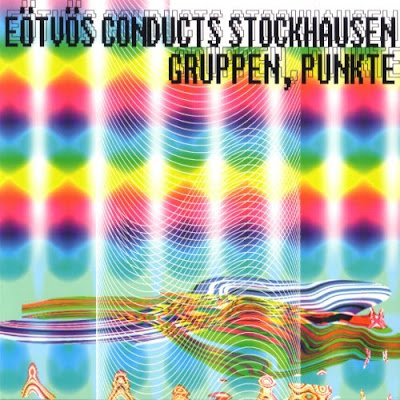Norman Lebrecht: Slipped Disc and Lebrecht Weekly, 12/05/2023 "Why I cannot, in good conscience, review this record I cannot, in all conscience, give this recording a star rating, or even a detailed review. The soloist is Elisabeth Leonskaja, a legendary pianist whose introspections are perhaps the strongest living reminder of her late friend Sviatoslav Richter....Christian Thielemann, in the recent film ‘Music under the Swastika’, claimed that Wilhelm Furtwängler’s complicity in the Third Reich was justified by his legacy of extraordinary recordings. Leonskaya’s presence in Putin’s Russia is not dissimilar. What are we to make of them?... The performances, per se, have nothing to do with the present situation. And yet, everything.I cannot review them". . ..and if you don't like my principles... well, I have others . Norman Lebrecht: Slipped Disc , 19/11/2025 "The Muziekgebouw in Eindhoven has cancelled a December 4 concert by the Russian-Georgian Jewish pia...


Comments
I have no doubt about Herbert von Karajan's dubious behaviour during the Third Reich, but I've always wondered how true it was that a picture of H.V.K. exists in which he is wearing an SS uniform, as Lebrecht as claimed, or that he did conduct the Horst Wessel song in Paris. As for his goose-stepping to the stage, I have seen footage of him from the period in which hje literally prances to the podium and curtsies to the audience in a foppish manner, complete with unruly hair. Lebrecht has also claimed that VK's first, half-Jewish, wife was granted "Honorary Aryian" status, one of only six people to be so awarded, because of VK's clout (some also claim one of the others so-granted was Fritz Kreisler).
Honestly, is seems Lebrecht has such an axe to grind, or at least an agenda that goes beyond music criticism.
Cheers
David Cavlovic
Pages 200 to 206 are a verbatim transcript of Karajan's denazification tribunal. It confirms that Karajan was a member of the rank and file Nazi party (NSDAP).
It also confirms that during the war Karajan conducted in Paris and was required to conduct the Horst Wessel Lied, instead of the official German anthem, before a performance of Tristan.
The transcript of the tribunal ends with these words:
The commission concludes that Karajan was not involved in any illegal activity between 1933 and 1938.
By a complete coincidence I'm currently reading Steven Bach's excellent Leni, the Life & Work of Leni Riefenstahl (Little Brown ISBN 9780316861113).
This book reports that only 5% of German women ever joined the Nazi party, and, quite astonishingly, Leni Riefenstahl was never a party member.
The Nazis were the only party not to elect a woman to the Reichstag.
Having read Riefenstahl's autobiography (quite well done in terms of the writing itself, though how reliable I'm not sure), I'm just wondering what the bio your reading has to say about her own book. I've often seen and heard it criticized (most cogently in the excellent documentary "The Wonderful Horrible Life of Leni Reifenstahl"), but I haven't really read anything that can definitely dispute her version of things. Lots of inuendo and assumptions that seem mostly based on sheer personal dislike. (Rumors she was Hitler's lover, etc.)
The same seems to be the case with HvK, especially with Lebrecht's anomosity. His recent article trashing Karajan as a "monster", and "moral and creative nullity" struck me as rather extreme. Certainly Karajan was no saint, and one could argue there are artistically more accomplished conductors, and he probably should have done more to atone for his past Nazi party membership, but invective such as that of Lebrecht's seems far in excess of what is justified by the facts of HvK's known actions at the time. It's interesting that ex-Nazi party members like Karajan are still subjected to such vitriol, while prominent ex-Communists and Stalinists such as Eric Hobsbawm, writers such as Elfriede Jelinek, Dario Fo, and Saramago, and composers such as Luigi Nono and Hans Werner Henze are largely given a pass (or even lauded) by the critics and chattering classes for their past(and in some cases current) political affiliations.
There is objective coverage of the wide range of critical reaction to the publication of Riefenstahl's Memoiren.
But tellingly Steven Bach says this of the book - 'she undertook the arduous five-year task of setting down her life how she wanted it told'.
Steven Bach categorises the rumour that she was Hitler's lover as elaboration.